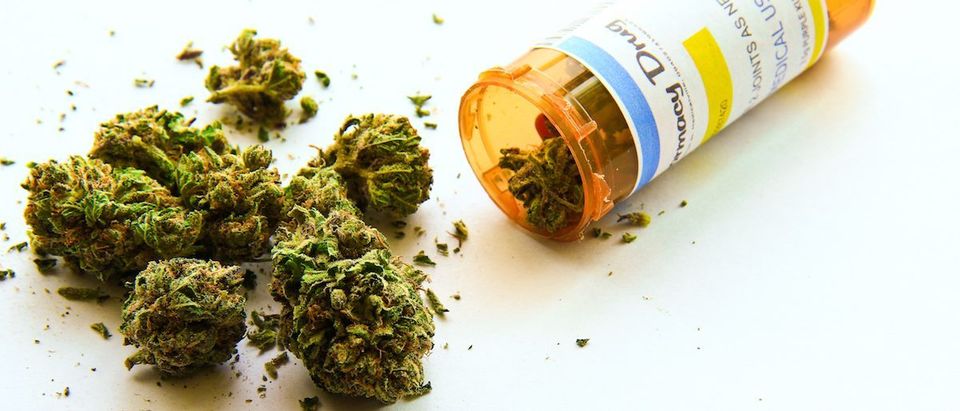Medical marijuana helped save Medicare more than $165 million in 2013, according to a study published in the journal Medical Affairs.
The study was undertaken by investigators at the University of Georgia (UG) and funded with leftover money from the University’s research account, W. David Bradford, co-author of the study, told The Daily Caller News Foundation Tuesday.
The authors looked at the relationship between medical marijuana and prescribing patterns of doctors in 17 states over three years. They found significantly less was spent on Medicare in 2013 because of medical marijuana, according to a recent article by the pro-pot National Organization for the Reform of Marijuana Laws (NORML).
“Generally, we found that when a medical marijuana law went into effect, prescribing for FDA-approved prescription drugs under Medicare Part D fell substantially,” the UG investigators reported. “Ultimately, we estimated that nationally the Medicare program and its enrollers spent around $165.2 million less in 2013 as a result of changed prescribing behaviors induced by … jurisdictions that had legalized medical marijuana.”
The investigators go on to say that, if enacted nationally, medical marijuana could save the country $468 million a year.
The study noted that prescriptions for issues that marijuana can treat — like anxiety, depression or nausea — went down in states that have medical marijuana laws, while prescriptions for things like blood thinners did not. Signaling that medical marijuana was likely the cause for the sharp decline in Medicare spending.
Currently, 25 of the 50 states have legalized medical marijuana (or fully legalized marijuana), while Florida, Missouri and Arkansas are set to vote on the issue in November.
The Drug Enforcement Agency (DEA) classifies marijuana as a Schedule I drug. A Schedule I drug is defined as one that has “no currently accepted medical use.” Other drugs sharing that classification are LSD, heroin and peyote.
Bradford notes in the study that medical marijuana’s classification as a Schedule I drug may be outdated.
“Our findings and existing clinical literature imply that patients respond to medical marijuana legislation as if there are clinical benefits to the drug,” the study says. “Which adds to the growing body of evidence suggesting that the Schedule I status of marijuana is outdated.”
While the DEA says marijuana currently has no medical use, a growing body of scientific evidence is calling that into question.
Procon.org, a non-partisan website, posted a link showing 41 peer reviewed papers claiming the benefits of medical marijuana, and Newsweek ran a story in 2015 that also claims medical marijuana is effective for certain ailments.
“Use of marijuana for chronic pain, neuropathic pain, and spasticity due to multiple sclerosis is supported by high-quality evidence,” Kevin Hill, a psychiatrist who runs the Substance Abuse Consultation Service at McLean Hospital, told Newsweek.
The DEA announced that it will, at some point, determine if it will reschedule the drug — something officials said they were going to do in the first half of 2016. DEA officials now says they “aren’t holding ourselves to any artificial time frame,” as reported by The Denver Post Monday.
If the DEA does reschedule marijuana, it could effectively legalize medical marijuana on all 50 states.
Follow Craig Boudreau on Twitter.
Send tips to craig@
All content created by the Daily Caller News Foundation, an independent and nonpartisan newswire service, is available without charge to any legitimate news publisher that can provide a large audience. All republished articles must include our logo, our reporter’s byline and their DCNF affiliation. For any questions about our guidelines or partnering with us, please contact licensing@dailycallernewsfoundation.org.












